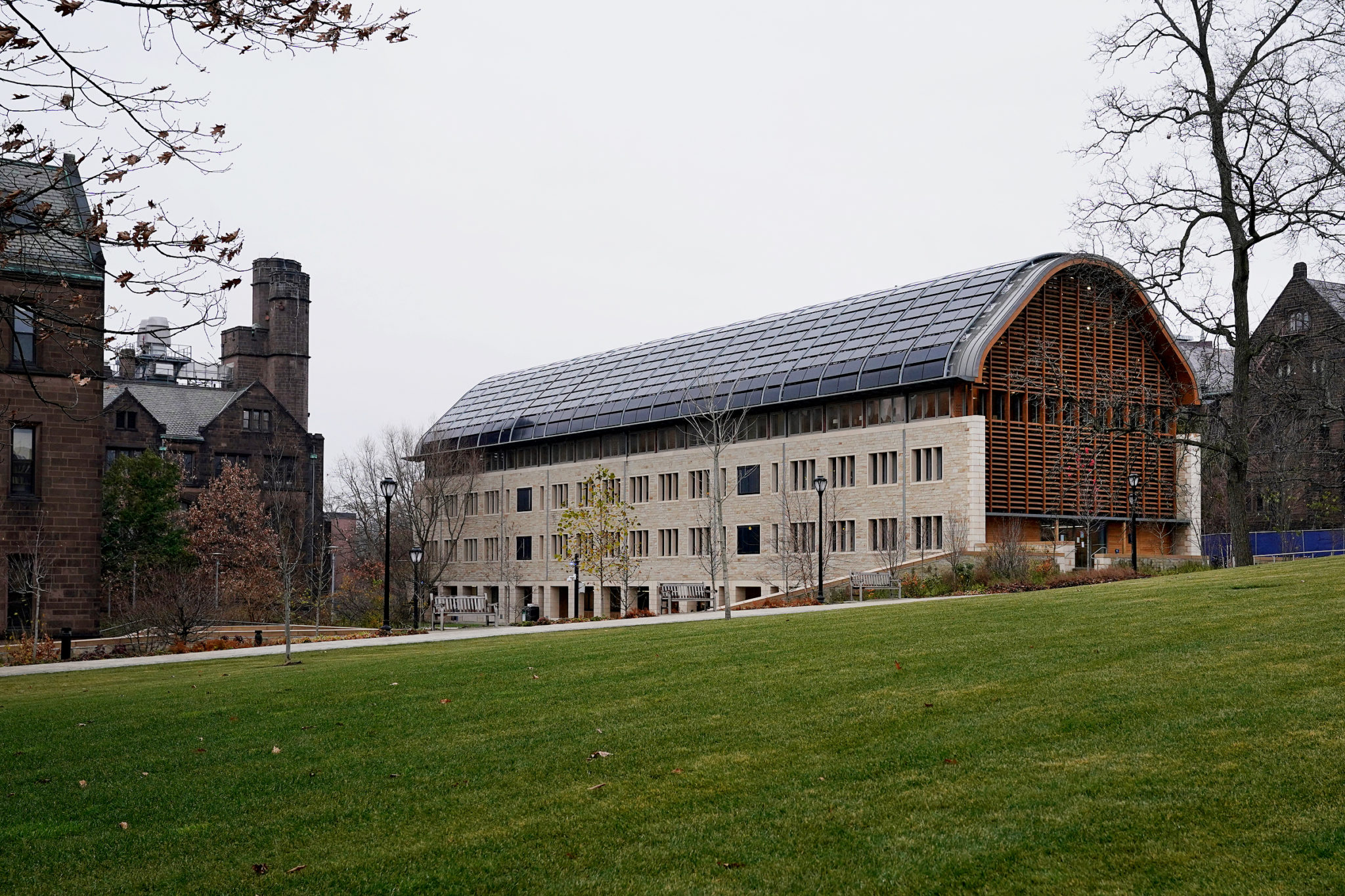Yale doctoral student Lauren Mazurowski wins first in NSF Perfect Pitch Competition
Second year doctoral student Lauren Mazurowski takes first place in National Science Foundation competition

Tim Tai, Photography Editor
Yale environmental engineering doctoral student Lauren Mazurowski GRD ’27 won first place in the 2022 National Science Foundation’s Perfect Pitch Competition in late September, securing a $5,000 cash prize.
The Perfect Pitch Competition is an annual contest in which participants make a 90-second pitch describing their own research. The competition ran from Sept. 20 to Sept. 21. Researchers that make it to the final round of the competition — like Mazurowski — present in front of a panel of judges that include not only industry-affiliated judges but also experts from the venture capital world.
“The point of the competition [is to] train people [on] how to give the pitch,” Mazurowski said. “[The pitch] is supposed to be a well-organized, 90-second pitch that is able to convey the what, where, when, why of your research and why someone else should invest in it.”
There are a total of 17 other NSF Engineering Research Centers across the nation that hosted local competitions, with one finalist from each being given the opportunity to advance and present their fine-tuned pitch at the national level.
According to the NSF website, competitors must answer three specific points in their pitch: “what real-life problem their research addressed,” “how they solved it in a unique way” and “what impact it would have for society.”
Mazurowski’s presentation focused on recovering copper from industrial waste streams to then reuse in future manufacturing.
“We globally want to transition into a de-carbonized world,” Mazurowski said. “To do that, we are going to have to manufacture a lot of batteries and components for energy storage … and those things require some select elements, like copper, lithium, cobalt and [more].”
The local engineering research center that Mazurowski is a part of, the Nanotechnology-Enabled Water Treatment Systems Center, or NEWT, is based out of Rice University in Texas but has partnered with Yale in a $18.5 million effort to provide clean water and streamline U.S. energy production.
More specifically, the center focuses on mobile water treatment solutions, providing low-resource communities with efficient water treatment solutions without the need to invest in expensive water treatment facilities.
“We’re a part of a research center … that is funded by the National Science Foundation,” Ryan DuChanois GRD ’23, a 6th year doctoral student working in the same field as Mazurowski, said. “My PhD research looks at how to separate metals that are almost identical to one another … so some of the principles that I have identified in my PhD [formed] the basis of [Mazurowski’s] pitch.”
DuChanois and Mazurowski have worked together to engineer membranes designed to separate copper from other metals in waste streams, thereby increasing the availability of copper.
“We tried to make a membrane that is selective [for] copper,” said Mazurowski. “In my first year, I worked with [DuChanois] … [who] was my mentor for this work.”
NEWT also has educational collaborators from Arizona State University and the University of Texas at El Paso, as well as industrial collaborators including Shell, Baker Hughes, UNESCO, the U.S. Army Corps of Engineers and NASA.
Julianne Rolf GRD ’24, a doctoral student at Yale in the department of chemical and environmental engineering, competed in an earlier round of the competition.
Rolf said she saw the competition as a way to develop her communication skills.
“I [wanted] to improve my communication skills as much as possible before graduating,” Rolf wrote to the News. “This pitch competition was the perfect opportunity.”
Past winners have included doctoral students from the University of California, Berkeley, Texas A&M University and others.







